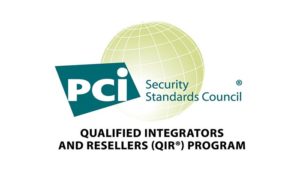Microsoft Dynamics AX and D365 validated P2PE solution elements vary by vendor plugin and their certifications which can be researched on the PCI security standards council website here https://www.pcisecuritystandards.org/assessors_and_solutions/point_to_point_encryption_applications?reference=2017-00113.005. Merchants can choose either P2PE terminals or validated P2PE solutions with their terminals. The latter requires extra steps to implement and maintain.
A PCI P2PE solution can significantly reduce the PCI Data Security Standard (PCI DSS) validation effort of a merchant’s cardholder data environment as well as the cost of a third party assessor reviewing a merchant’s card data environment. Another benefit is simply the reduced risk of a data breach, and the potential millions in costs and lost reputation. An qualified assessor informed me at a conference, there has never been a data breach in an environment with properly implemented validated P2PE solution; The same cannot be said for merchants using P2PE terminals.
P2PE Applications are intended to be loaded onto PCI-approved point of interaction (POI) devices used as part of a P2PE Solution. Use of a P2PE Application on a PTS-approved POI device (outside of a listed P2PE Solution) does not constitute use of a P2PE Solution. I am frequently asked by consultants about other payment gateway compatibility with Cardconnect and the related CardConnect Bolt application dependency. Other payment gateways and or P2PE solutions, including CenPOS, are distinct solutions. Each has its own P2PE certification as documented on the PCI council website. Two different solutions cannot be used together; merchants must decide which is the better overall solution for their environment. Sidenote: CenPOS does not have any application dependencies for their P2PE certification.
Can you mix P2PE solutions, for example, for call centers vs retail? Excellent question. Certainly transactions would need to be run on different merchant accounts and each would be defined as to scope i.e. not entire business, but only part of an operation. This arrangement is not ideal, but maybe is a useful gap solution during a software or hardware migration.
Which P2PE application is best for your Microsoft Dynamics AX or D365 environment? This question is best answered by speaking with a payments consultant who is familiar with credit card processing rules, data security rules, and integration nuances. Differences in the integration methods and native features for the respective products often determine why to choose one vs another.
Christine Speedy, Founder 3D Merchant Services, is a credit card processing expert with specialized expertise in card not present and omnichannel technology. Christine is an authorized reseller for Elavon and CenPOS products and services, in addition to other solutions and is QIR certified by the PCI Council. Call Christine for all your Microsoft Dynamics payment gateway and payment processing needs.

